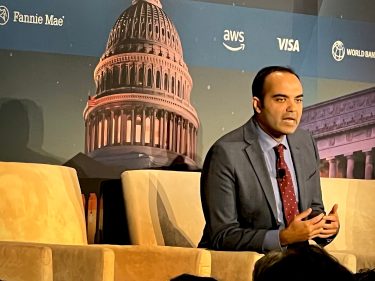-
A bettor who made millions correctly betting Trump would win loses a cool sum on Mike Tyson.
-
GOP firebrand Matt Gaetz probably won’t be confirmed as AG.
-
Polymarket bettors are unsure if Americans are happy.
Can’t win ’em all.
Polymarket user “zxgngl” pocketed $11.4 million by correctly betting that Republican candidate Donald Trump would re-take the White House. But he lost $3.4 million by taking the wrong side of Friday night’s match-up between boxing legend Mike Tyson, and influencer-turned-pugilist Jake Paul.
Plenty of punters lost money with long-shot bets on Tyson, the geriatric underdog. But “zxgngl” was the night’s biggest loser by far. The runner-up in losses clocked a negative $105,390 and the third-place loser is down $99,997.
Prediction markets are usually structured as yes/no bets on a given outcome; each share pays out $1 (in cryptocurrency, in Polymarket’s case) if the bet proves correct, and zero if not. The price of a share, expressed in cents on the dollar, indicates the market’s assessment, when translated into percentage terms, of the prediction coming true.
On the eve of the fight, “yes” shares in Paul were trading at 62 cents, signaling a 62% probability he would win. Punters gave 29% odds of Tyson overcoming the age advantage and an 11% chance of the fight ending in a draw or otherwise not designated as a win for either fighter.
Even before the match began, boxing commentators were saying that the ending was predictable, and the sad spectacle of a man old enough to be Paul’s father laboring intensely to keep up with him in the ring didn’t make for great television.
The fight almost certainly wasn’t rigged, according to a separate Polymarket contract, which gives just a 1% chance of evidence emerging to the contrary by Nov. 23.
And for the record, there’s not much of a Trump-Tyson correlation. The traders who lost money on the fight made a mix of bets on each presidential candidate.
:format(jpg)/cloudfront-us-east-1.images.arcpublishing.com/coindesk/V4OLKJZTORCIXNC5B3GZMQJEPM.png)
Polymarket bettors don’t think that Matt Gaetz will be confirmed as Attorney General, giving it a 21% chance of happening.
Florida’s Gaetz is a controversial pick for Attorney General because he courts controversy.
Gaetz has been something of a professional troll while in Congress, with a taste for publicity stunts from picking fights with the Republican speaker of the house to making comments about the physical appearance of pro-abortion protestors – and doubling down on those comments. In the eyes of many, he’s developed the reputation of an agitator rather than a professional legislator.
But Gaetz has also done exceptional work in the House in moving a bill that would restrict members of Congress from owning and trading individual stocks, which saw support from all sides of the political spectrum and counts Representative Alexandria Ocasio-Cortez as a co-sponsor.
Gaetz has faced allegations of sexual misconduct, drug use, and accepting inappropriate gifts. The allegations of sexual misconduct led to an investigation where prosecutors declined to press charges.
To be confirmed, Gaetz will need the support of 50 of the 53 Republicans in the Senate. Among those 50 are certainly bridges Gaetz has burned, or others that might have grown tired of his antics.
“I don’t think it’s a serious nomination for the attorney general,” Republican Senator Lisa Murkowski is quoted as saying in a recent press scrum.
And given the odds on Polymarket, the market tends to agree.
Meanwhile, at Kalshi, a U.S.-regulated prediction market where bets are settled in dollars, traders give Gaetz slightly better odds at 34%.
Will 2024 be a better year than 2023? Polymarket bettors say there’s only a 34% chance that the Ipsos “Me Personally” tracker, which polls Americans on how their year went, will reveal that this year was better than the last.
Last year the survey found that Americans believed 2023 was generally a good year, driven by positive economic trends like low unemployment and falling inflation. Americans who were surveyed at the time were also optimistic that 2024 would be even better.
Fast forward to the penultimate month of 2024, and the economy is a bit of a mixed bag. Some economic indicators, like the Conference Board’s Leading Economic Index, are signaling a recession risk and economic uncertainty heading into 2025; the University of Michigan’s Consumer Sentiment Index has also declined for most of the year.
But at the same time, the economy continues to grow, with GDP up as well as increased investments in manufacturing as the re-industrialization of the U.S. continues. Year-to-date, the S&P 500 is up 23%, and bitcoin has blown past all-time highs with no signs of slowing down.
Does all this mean we are happy? The World Happiness Report gives a mixed grade. Overall, North Americans aren’t much happier in 2024 than in 2023 and there has been a continued decline in happiness among young people aged 15-24. Maybe there’s more to life than money and a good economy.




